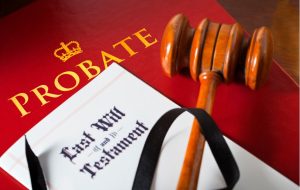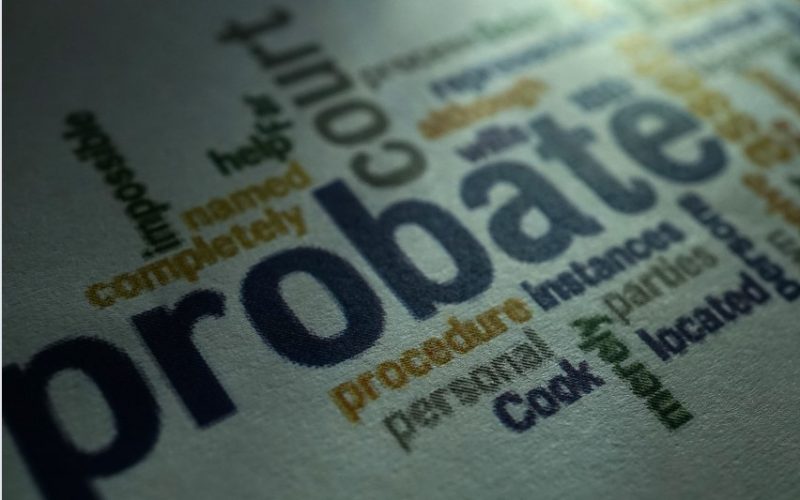Introduction
Probate is the legal process of distributing a deceased person’s assets to their beneficiaries, as outlined in their will. While this process is often necessary to ensure that the deceased’s wishes are carried out and their assets are distributed fairly and equitably, it can also be a source of conflict and disputes among family members and other beneficiaries.
In this article, we’ll explore some of the most common challenges and disputes that can arise during probate, and provide some insights into how they can be resolved.
What is Probate in Ontario?

Probate is a legal process in Ontario that involves asking the court to grant a person the authority to act as the estate trustee of an estate, legally confirm that the decedent’s will is their genuine final will, and affirm the authority of a person nominated as the estate trustee in the decedent’s will.
In general, probate is the procedure that gives someone the right to manage the distribution of an estate’s assets. This person is then designated as the Estate Trustee. Probate is not always required to administer an estate, but it may be necessary for certain circumstances.
Probate is the Court procedure for formal approval of the will by the Court as the valid last will of the deceased and appointment of the person who will act as the executor of the estate. The court procedure known as probate grants the executor the power to act on behalf of the decedent.
Purpose of Probate in Ontario
In Ontario, probate is a legal process that gives a person the authority to act as the estate trustee of an estate, confirms the authority of a person named as the estate trustee in the deceased’s will, and formally approves that the deceased’s will is their valid last will. The estate trustee is the only person with the legal authority to manage or distribute an estate.
The court procedure known as probate grants the executor the power to act on behalf of the decedent. It is a procedure wherein the court grants or upholds someone’s right to operate as an estate trustee. The court will also make sure the validity of any Wills that are there.
Probate is not always required to administer an estate, but it is essential in some cases to ensure proper management of the estate.
When is Probate Required?
Probate is required in certain situations, such as when the will is contested or deemed invalid due to mental incompetence or undue influence. The exact circumstances under which probate is required may vary depending on the jurisdiction.
If an estate certificate is required to gather, distribute, transfer, or administer the estate, Ontario law, according to RBHF Law Group, mandates probate. Probate is not necessary for every estate, though. The general rule of thumb is that probate will almost certainly be necessary if an estate certificate is needed.
What Assets are Subject to Probate?
In Ontario, property held in another person’s name, bank accounts (including foreign or out-of-province banks), investments, and Ontario-located real estate is among the assets that may need probate. Goods or materials, such as personal belongings, are generally not subject to probate.
Additionally, assets put into a trust, insurance proceeds, RRSPs, RRIFs, and TFSAs are not generally subject to probate in Ontario.
How to Apply for Probate in Ontario?

You can get a Certificate of Appointment of Estate Trustee or a Small Estate Certificate from the Ontario Superior Court of Justice to file for probate in that province. If the estate is valued at up to $150,000, you can apply for a Small Estate Certificate. To apply for a Certificate of Appointment of Estate Trustee, you’ll need to collect the relevant documents and submit them to the Court, including the original will (if there is one) plus any later additions, proof of death (death certificate or court order), and official information about assets and their beneficiaries.
It is recommended that you consult a probate lawyer to assist you with the application process and any issues that may arise when distributing the assets. Additionally, it is important to use the probate tax calculator to determine the estate assets value to calculate the Estate Administration Tax and prepare a list of assets as soon as possible.
Probate Fees in Ontario
Probate fees are based on the value of your estate, the number of beneficiaries and executors you appoint in each province or territory, and whether or not there is a lawyer involved. The Canada Revenue Agency (CRA) administers all probate fees charged by practicing lawyers in Ontario.
In Ontario, the probate fees are calculated based on the value of the estate probated. For estate assets up to $50,000, the probate fees are $nil. For estate assets over $50,000, probate fees are $15 per $1,000 of estate assets.
Moreover, there is an estate administration tax that needs to be paid when applying for probate in Ontario. The estate administration tax is 1.5% of the estate’s value.
If the estate is valued at up to $150,000, you can apply for a Small Estate Certificate, which is a simpler and less expensive process than a Certificate of Appointment of Estate Trustee.
Reducing probate fees can be done by reducing the value of the estate through proper estate planning, such as gifting assets, joint ownership, and beneficiary designations.
Executors and their Role in Probate

An executor is a person appointed by the deceased in their will to carry out the instructions in the will and administer the estate. In Ontario, the executor is also known as an estate trustee.
The executor’s role in probate includes gathering all assets of the deceased, paying off any debts or taxes owed by the estate, and distributing the assets according to the instructions in the will. The executor is responsible for applying for a Certificate of Appointment of Estate Trustee with the Ontario Superior Court of Justice, and for ensuring that all necessary documents are filed correctly and on time.
The executor also has a fiduciary duty to act in the best interests of the estate and its beneficiaries and must exercise due diligence and care in the administration of the estate. They must keep accurate records of all transactions and decisions made on behalf of the estate and must provide regular updates to the beneficiaries on the status of the estate.
The executor needs to work with a lawyer and accountant to ensure that all legal and tax requirements are met during the administration of the estate. Executors can be held liable for any mistakes or omissions made during the probate process, so it is important to take their role seriously and seek professional advice when necessary.
Potential Challenges and Disputes in Probate
Several potential challenges and disputes can arise during the probate process in Ontario.
Some of the most common ones include:
- Will disputes: This occurs when there is a disagreement about the validity or interpretation of the will. This can occur when the will is unclear, or when there are suspicions that the will was signed under duress or undue influence.
- Claims against the estate: Creditors may make claims against the estate, and beneficiaries may contest the distribution of assets.
- Family disputes: Family members may disagree about the distribution of assets, especially if there is no will or if the will is not clear.
- Executor disputes: Beneficiaries may disagree with the actions of the executor, such as the sale of assets or the handling of funds.
- Tax disputes: The Canada Revenue Agency may challenge the valuation of assets or the tax liability of the estate.
To prevent disputes, it is important to have a clear and detailed will that outlines the distribution of assets. It’s crucial to select an executor who can carry out the directions in the will and is dependable. If disputes do arise, it may be necessary to seek legal advice and mediation to resolve the issues.
Conclusion
In conclusion, probate in Ontario is the legal process of validating a deceased person’s will and ensuring that their assets are distributed according to their wishes. This includes paying off debts and taxes owed by the estate, gathering assets, and distributing them to the beneficiaries named in the will.
Trustees or Executors play a crucial role in the probate process and must ensure that all legal and tax requirements are met. While some potential challenges and disputes can arise during probate, having a clear and detailed will and choosing a trustworthy executor can help prevent these issues.










